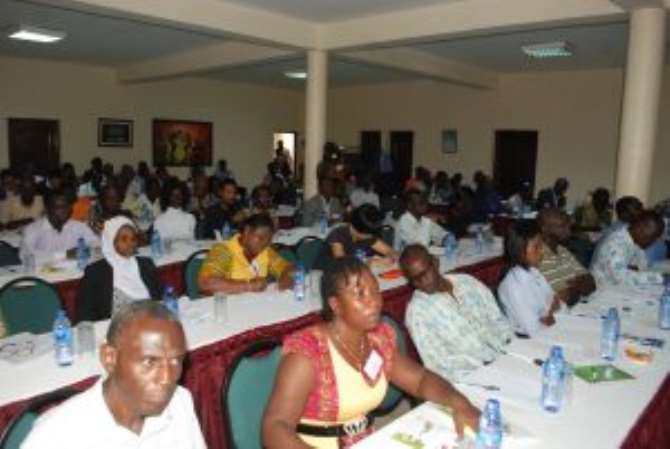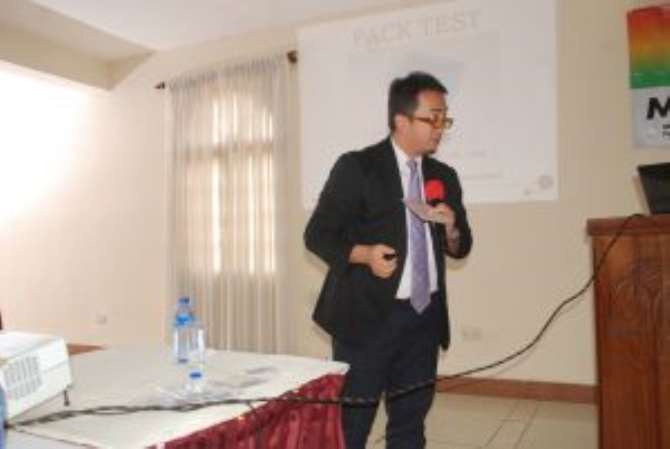To help shape the agriculture industry, the Japanese Embassy in Ghana has organized one-day seminar for farmers on how to add value to their produce in order to generate more income and create employment.
The seminar, which is aimed at the development of Food Value Chain, introduced used farm equipment such as multipurpose tractors for harvesting, rotary, spraying, mowing, plowing and leveling, industrial refrigeration compressors and high quality food processing machines.
Other Japanese services and products exhibited to participants, drawn from the Ministry of Food and Agriculture, Ministry of Trade and Industry and the Ghana Investment Promotion Centre include research, business consulting, human resource consulting and membership service, as well as high quality rice milling machines.
The 2016 seminar on the Development of Food Value Chain in Africa was held in Accra under the theme -“Creating new markets by linking consumer, producers, famers and economies”.
Mr. Shigeru Umetsu, Charge d' Affaires, Japan Embassy in Ghana, addressing the participants said though food value chain is a new approach to agricultural development in Africa it, however, gained prominence as the agricultural development strategies.
“Establishment of food value chain is key for not only the agricultural sector but the general Ghanaian economy as well.
“I believe this seminar will one day offer participants the opportunity to gain knowledge from Japanese companies' experiences in Africa on food value chain and technology know-how,” he added.
He hoped that the seminar would create a platform for participants to exchange ideas on best practices of improving agricultural businesses.
Mr. Nicholas Neequaye, Director of Agribusiness Unit – Ministry of Food and Agriculture added that the major problem affecting the Ghanaian farmer is their inability to be proactive with relating marketing to production.
This, he said, the ministry has made available some funds to support actors on the food value chain that have the ability to export huge farm produce to abroad, adding “we need to arias the capacity of actors on the value chain.”
A value chain approach in agricultural development helps identify weak points in the chain and actions to add more value.
A value chain is a set of linked activities that work to add value to a product; it consists of actors and actions that improve a product while linking commodity producers to processors and markets.
Value chains work best when their actors cooperate to produce higher-quality products and generate more income for all participants along the chain, as opposed to the simplest kinds of value chains, in which producers and buyers exchange only price information — often in an adversarial mode.
source: Ghanaian Chronicle



Comments